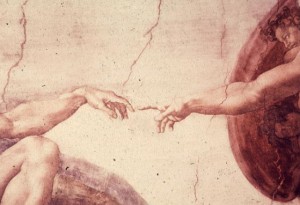From Thomas A. Kempis’s The Imitation of Christ:
If you cannot recollect yourself continuously, do so once a day at least, in the morning or in the evening. In the morning make a resolution and in the evening examine yourself on what you have said this day, what you have done and thought, for in these things perhaps you have often offended God and those about you.
Arm yourself like a man against the devil’s assaults. Curb your appetite and you will more easily curb every inclination of the flesh. Never be completely unoccupied, but read or write or pray or meditate or do something for the common good. Bodily discipline, however, must be undertaken with discretion and is not to be practiced indiscriminately by everyone.
Devotions not common to all are not to be displayed in public, for such personal things are better performed in private. Furthermore, beware of indifference to community prayer through love of your own devotions. If, however, after doing completely and faithfully all you are bound and commanded to do, you then have leisure, use it as personal piety suggests.
Not everyone can have the same devotion. One exactly suits this person, another that. Different exercises, likewise, are suitable for different times, some for feast days and some again for weekdays. In time of temptation we need certain devotions. For days of rest and peace we need others. Some are suitable when we are sad, others when we are joyful in the Lord.
About the time of the principal feasts good devotions ought to be renewed and the intercession of the saints more fervently implored. From one feast day to the next we ought to fix our purpose as though we were then to pass from this world and come to the eternal holyday.
During holy seasons, finally, we ought to prepare ourselves carefully, to live holier lives, and to observe each rule more strictly, as though we were soon to receive from God the reward of our labors. If this end be deferred, let us believe that we are not well prepared and that we are not yet worthy of the great glory that shall in due time be revealed to us. Let us try, meanwhile, to prepare ourselves better for death.
“Blessed is the servant,” says Christ, “whom his master, when he cometh, shall find watching. Amen I say to you: he shall make him ruler over all his goods.”





